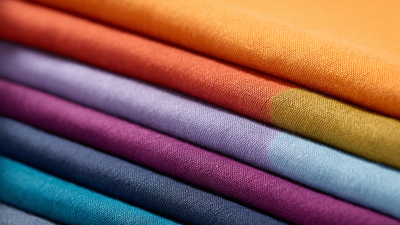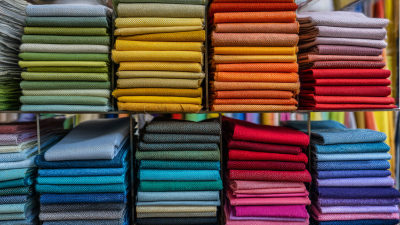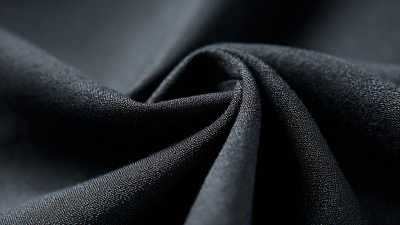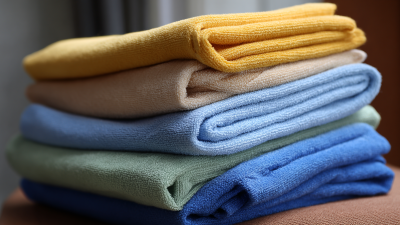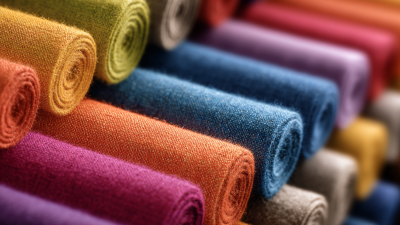- +86 13957580925
- 510515850@qq.com
- adela0928@163.com
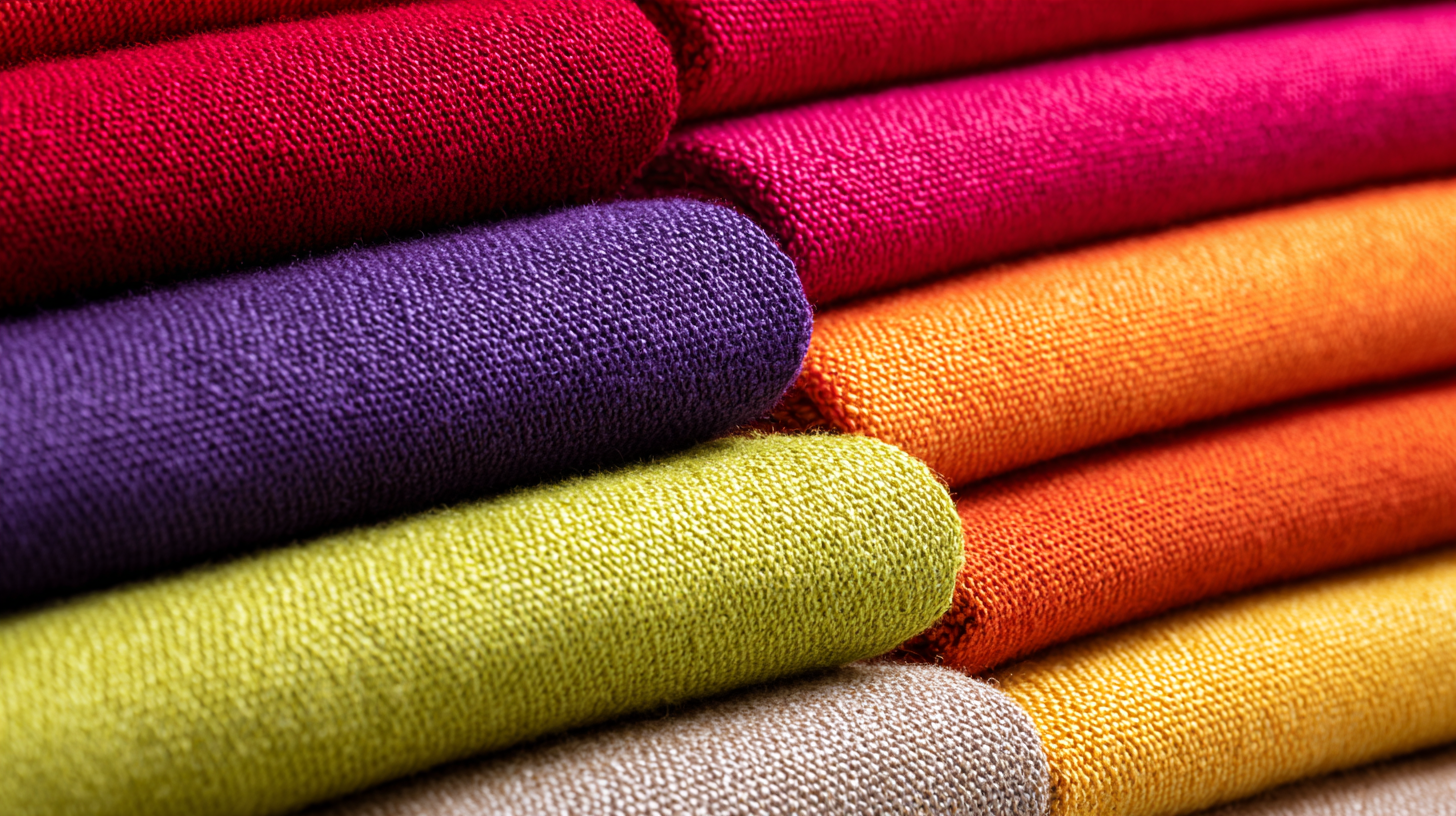 Polyester Tricot Fabric has emerged as a key player in the textile industry, offering a unique blend of
versatility, durability, and comfort. According to a recent report by Market Research Future, the global polyester fabric market is projected to reach USD 120 billion by 2027, fueled by the growing demand for sustainable and high-performance textiles. This innovative material is particularly favored for its lightweight nature and moisture-wicking properties, making it ideal for activewear and outdoor apparel. Furthermore, its ability to retain color and resist wrinkles has made Polyester Tricot Fabric a preferred choice among manufacturers looking to enhance both functionality and aesthetic appeal in their products. As the industry continues to evolve, the significance of Polyester Tricot Fabric in driving sustainability and innovation remains undeniable, positioning it as a pivotal fabric in modern textile applications.
Polyester Tricot Fabric has emerged as a key player in the textile industry, offering a unique blend of
versatility, durability, and comfort. According to a recent report by Market Research Future, the global polyester fabric market is projected to reach USD 120 billion by 2027, fueled by the growing demand for sustainable and high-performance textiles. This innovative material is particularly favored for its lightweight nature and moisture-wicking properties, making it ideal for activewear and outdoor apparel. Furthermore, its ability to retain color and resist wrinkles has made Polyester Tricot Fabric a preferred choice among manufacturers looking to enhance both functionality and aesthetic appeal in their products. As the industry continues to evolve, the significance of Polyester Tricot Fabric in driving sustainability and innovation remains undeniable, positioning it as a pivotal fabric in modern textile applications.
Polyester tricot fabric has emerged as a significant player in modern textiles, showcasing its versatility and adaptability across various applications. Initially developed for the fashion industry, this lightweight and durable fabric has quickly gained recognition in other sectors, including sportswear, home furnishings, and technical textiles. The silky finish and smooth texture of polyester tricot make it an attractive choice for garments, while its ability to wick moisture and dry quickly enhances its appeal for activewear.
The rise of sustainability in the textile industry has further propelled polyester tricot into the spotlight. As manufacturers increasingly seek eco-friendly alternatives, innovations in recycling and production processes have positioned polyester as a more sustainable option. In addition, the fabric's longevity and resistance to wear make it a practical choice for consumers looking for durable products. Consequently, polyester tricot has not only transformed contemporary clothing but also set a precedent for future innovations in textile manufacturing.
Polyester tricot fabric has gained popularity in the textile industry due to its unique characteristics that set it apart from other materials. One of the key features is its
exceptional durability. This fabric is resistant to wear and tear, making it ideal for garments that require frequent use, such as athletic wear and uniforms. The strength of polyester tricot ensures that items maintain their shape and appearance over time, providing long-lasting value for consumers.
Another standout characteristic is the fabric's lightweight and breathable nature. Polyester tricot allows for excellent airflow, keeping the wearer comfortable across various climates. Moreover, it has
moisture-wicking properties, efficiently drawing sweat away from the skin, which is particularly beneficial for active individuals. Additionally, the fabric exhibits a soft texture, enhancing comfort without compromising on functionality. Its ability to retain color vibrancy after multiple washes further underscores polyester tricot's appeal, ensuring that clothing remains visually appealing and fresh longer.
Polyester tricot fabric has made significant strides in various industries, showcasing its versatility and practicality. One of the top industries impacted by polyester tricot innovations is the athletic apparel sector. The fabric's lightweight, breathable nature, along with its moisture-wicking properties, makes it ideal for sportswear. Athletes benefit from enhanced performance as polyester tricot allows for greater movement and comfort, keeping them dry and cool during intense activities.
The fashion industry has also experienced a transformation thanks to polyester tricot. Designers appreciate the fabric's ability to hold vibrant colors and its durability, making it a popular choice for both high-end and casual collections. This adaptability not only supports various styles but also caters to sustainable practices, as polyester can be recycled, reducing waste in the fashion cycle.
**Tips:** When selecting polyester tricot for your projects, consider the specific performance needs of the end-use, whether it’s for durability in sports or stylish draping in fashion. It's essential to pay attention to the fabric weight and finish, as these factors can greatly influence the overall aesthetic and functionality of the final product. Additionally, explore eco-friendly options in polyester to align with sustainability goals while enjoying the benefits of this innovative material.
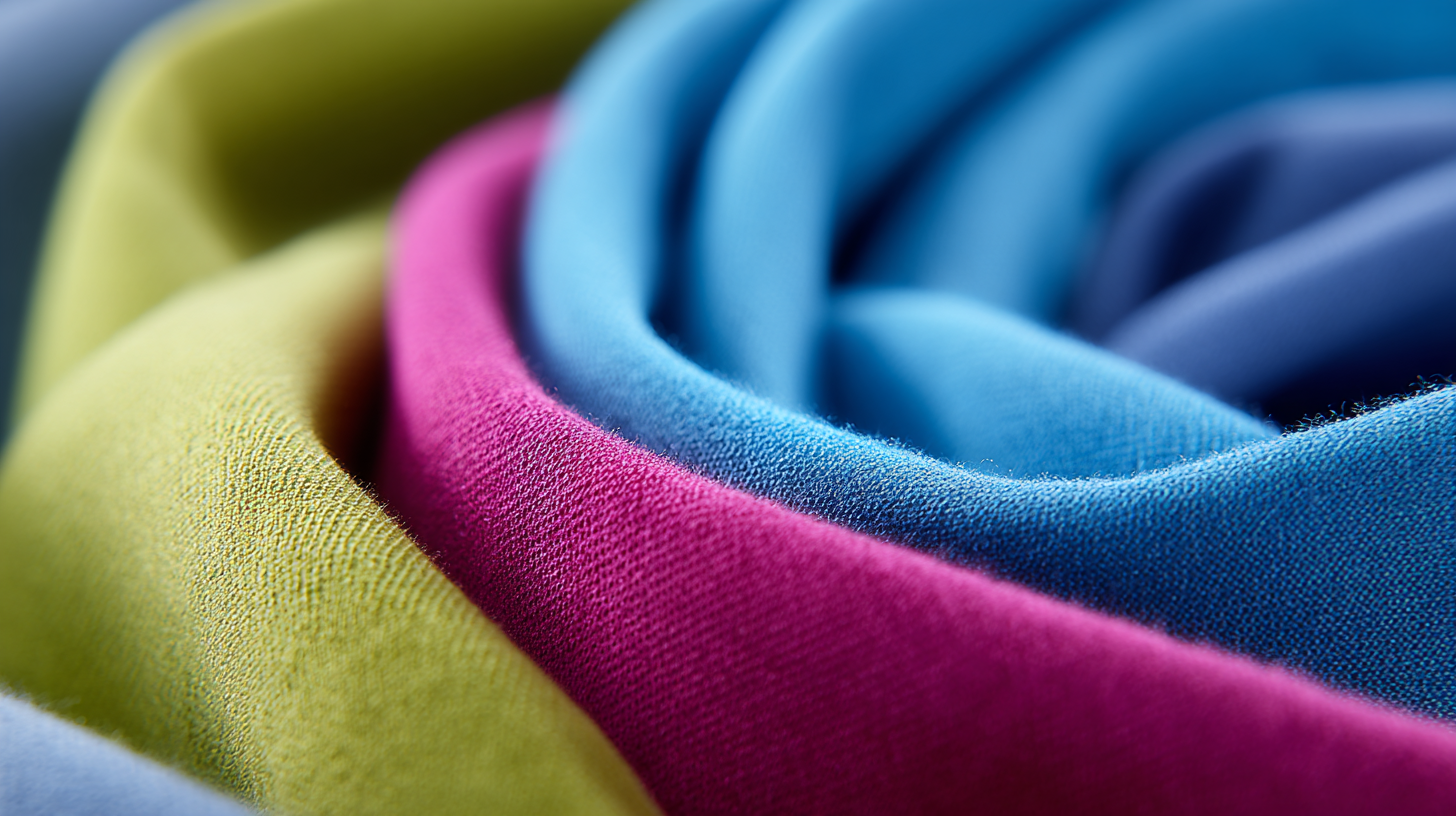
Polyester tricot fabric has become a staple in the apparel industry due to its unique blend of versatility and durability. One of the essential benefits of using polyester tricot is its incredible stretchability. This fabric can easily conform to the body, making it ideal for activewear and fitted garments. Designers appreciate its ability to provide both comfort and support, ensuring that movement is unhindered while maintaining a stylish silhouette.
Another significant advantage is its moisture-wicking properties. Polyester tricot effectively pulls moisture away from the skin, keeping the wearer dry and comfortable during physical activities. This feature makes it a popular choice for sportswear and athleisure collections, as it enhances performance by regulating body temperature. Additionally, the fabric requires minimal care, as it is quick-drying and resistant to wrinkles, making it perfect for everyday wear.
The fabric's vibrant color retention is another reason it's favored in apparel design. Polyester tricot holds dye well, resulting in bright, long-lasting colors that appeal to consumers. This characteristic not only enhances the aesthetic appeal of garments but also ensures that they maintain their visual appeal after multiple washes. As such, polyester tricot fabric stands out as a reliable choice for designers aiming to blend functionality with contemporary style.
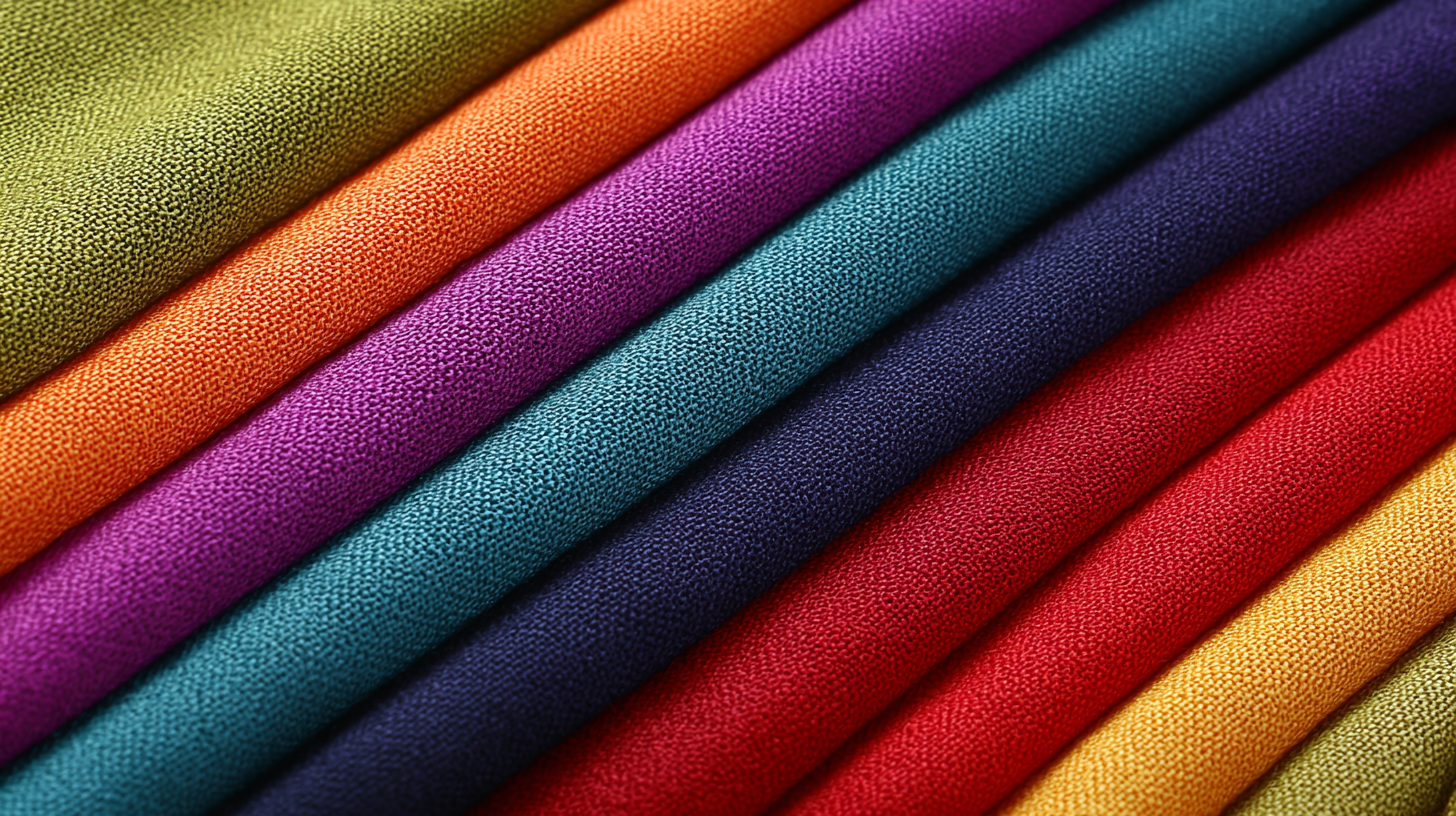
Polyester tricot fabric is known for its versatility and durability, making it a popular choice in various textile applications. To ensure that your polyester tricot garments retain their quality, it's essential to follow proper care guidelines. According to the 2022 Textile Care Report by the American Association of Textile Chemists and Colorists, synthetic fabrics like polyester can withstand a wider range of washing techniques, but they still require specific care to maintain their breathable and moisture-wicking properties. Washing in cold water and tumble drying on low heat is recommended, as this helps to prevent damage and distortion of the fabric.
In addition to appropriate washing methods, experts suggest avoiding bleach and strong fabric softeners, which can degrade the fibers over time. A study from the Textile Research Journal highlighted that proper maintenance not only prolongs the life of polyester tricot garments but also preserves their vibrant colors and soft texture. Regularly checking for pilling and removing any loose threads can help maintain the fabric's appearance. By implementing these care strategies, you can enjoy the benefits of polyester tricot for years to come.
| Dimension | Detail |
|---|---|
| Material Composition | 100% Polyester |
| Common Uses | Activewear, Linings, Swimwear, Home Textiles |
| Benefits | Soft Touch, Stretchable, Quick-Drying, Durable |
| Care Instructions | Machine wash cold, Tumble dry low, Iron on low heat |
| Maintenance Tips | Avoid fabric softeners, Store in a cool dry place |
| Sustainability Notes | Recyclable, Some brands use recycled fibers |
